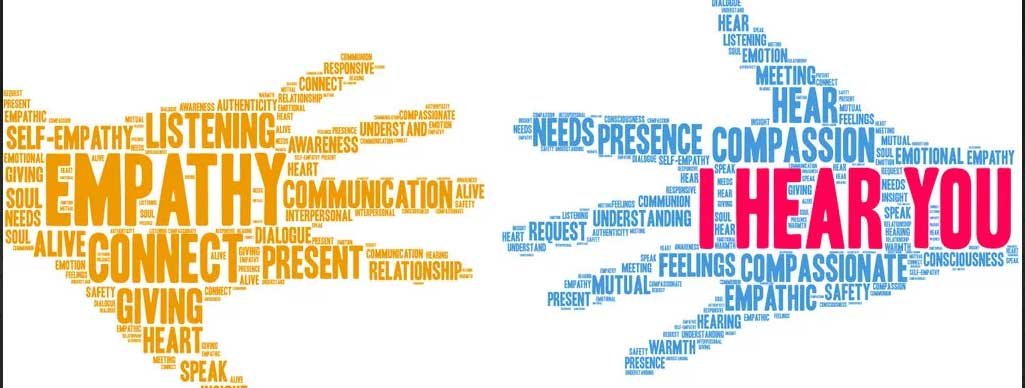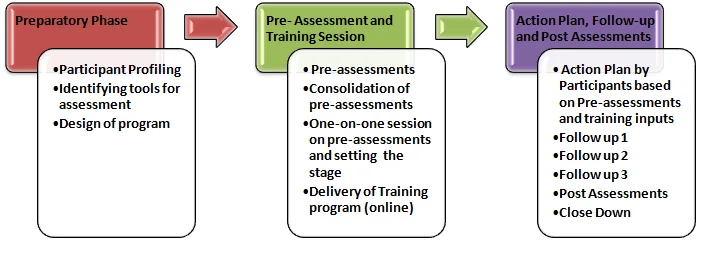

R. Deepa , PSG Inst. of Mgt, R. Kavitha , IOCL & Veerapadmanabhan, IOCL
deepa@psgim.ac.in, kraghupathy@indianoil.in, vveerapadmanaban@indianoil.in
Ms. Kavitha Ravikumar has a rich experience of 19+ years working in various profiles in IndianOil starting from Information systems to operations to sales to Aviation Operations to Training. In her current role, she is leading the Learning & Development department of Southern Region. She is a Passionate Trainer & a Certified Psychometric Analyst currently pursuing her Diploma in Training & Development. She also actively involves herself in various Social activities through her Seva team.
Mr. Veerpadmanabhan has rich experience of 11+ years in diverse functions such as Operations, Maintenance and Inspection, and currently working as Manager (L&D) at IOCL SRO. He has also been recently adjudged as “Young HR Icon of the year 2021” award by NHRDN for his outstanding contribution in the field of L&D and HR. He is also a Certified Psychometric Analyst and is also pursuing his Diploma in Training & Development.

Cultivating Compassionate Leadership – Emotional Intelligence Competency Development Program at Indian Oil Corporation Ltd
A true leader has the confidence to stand alone, the courage to make tough decisions, and the compassion to listen to the needs of others. He does not set out to be a leader, but becomes one by the equality of his actions and the integrity of his intent
Douglas Macarthur
Introduction
With the pandemic continuing to unfurl its devastation, organizations are facing a gamut of challenges from a multiple stakeholder perspective. COVID-19 has affected the livelihood, health, economy, and the mental health of each and every individual, resulting in emotional turmoil. Such a challenging environment puts the spirit of leadership to test. Leaders themselves are undergoing a lot of stress and trauma as they are witnessing the magnitude of the physical and psychological damages of the pandemic. Firstly, they have to manage their emotions and secondly they have to handle the emotions of their multiple stakeholders and keep the organization going. It is during such crucial times that emotional stability and compassionate leadership emerge as significant leadership traits.
July, 2020
An intense discussion was happening through virtual meeting by L&D Teams of Indian Oil Corporation Limited (IOCL). Though the lockdown was enforced, being in the essential services sector, IOCL had to operate in full force and its leaders were facing challenges greater than usual. Ho, L&D ably headed by Mr. Nilesh Nekaljay, CGM(L&D),HO and guided by Dr. Mukesh Ranjan Das, CGM(HR),HO wished to design interventions to help them rise up to the occasion and keep the flag flying high. They wanted to enhance the emotional stability of their leaders to withstand the traumatic conditions and also create a culture of compassion and Dr. M.R.Das drew the attention of the teams to a concept called Emotional Intelligence (EI) and shared the insights about the same.
On October 2, 1995, the Time Magazine featured the question “What’s your EQ” in its cover page, garnering the attention of the whole world to the wonderful concept called Emotional intelligence. EI was founded by John Mayer and Peter Salovey (1990) and is the ability of individuals to understand their and others’ emotions and use this knowledge for better intra and interpersonal outcomes. Daniel Goleman popularized EI through his book “Working with Emotional Intelligence”. EI encompasses four major sub skills namely self awareness, social awareness, self-management and relationship management.
A TalentSmart research concluded that people with high EI have 1) the resilience to bounce back during adverse times; 2) the ability to resolve conflicts amicably; and 3) establish and sustain an empathetic relationship with colleagues (Landry 2019). Travis Bradberry, President of TalentSmart opines that leaders signify the emotions and temperament of an organization and hence if they are ineffective in the way they understand and treat their subordinates, the bad effect trickles down to the lower levels and impacts the emotional state of the entire organization (Meinert, 2018). A lot of research has established the positive impacts of emotional intelligence in the organizational context. Over the decades, EI has evolved as a must-have skill and has been highlighted as a trending skill by the World Economic Forum in its report (World Economic Forum, 2020).
Knowing the significant value that EI could bring in for their leaders and being convinced, the L&D team decided to design and implement an Emotional Intelligence Competency Development program for the location head. Every region was assigned the role of running the program for all the location heads with a framework which involved pre assessment, training program delivering the concept, drafting of action plans and handholding for a period of 3 months. The Chief Manager, L&D, Southern Region wrote an email to an EI trainer with clearly laid out requirements and expected outcomes and thus started an effective intervention at IOCL Southern Region.
Overview of the Intervention
The intervention had three phases and was designed for a three-month duration, with the following desired outcomes.
- Channelize Emotional Intelligence in Leadership Roles by enhancing the self-awareness and the ability to understand others’ emotions
- Nurture Leadership Skills through EI and to help the leaders meet tomorrow’s business challenges and also significantly enhance employee engagement and happiness.
It started with a pre-assessments and ended with post-assessment to duly close the loop as represented in Figure 1.

Figure 1: Overview of the Intervention
Preparatory Phase
The L&D team helped the trainer understand the profile of the participants, their roles and responsibilities, and the context in which they are functioning. On the basis of the prevailing challenges and the objectives of the program, it was decided to assess the Emotional Intelligence and Interpersonal skills of participants pre and post the program. The appropriate tools to assess EI and interpersonal skills were identified and the program was designed and approved. The competencies assessed as part of EI and Interpersonal skills are listed in Table 1. The assessments were chosen to encompass all the domains of EI namely self-awareness, social awareness, self-management and relationship management.
Table 1: Competencies Assessed
Emotional Intelligence | Interpersonal Skills |
|
|
A workbook was also designed with lecture content and activities to substantiate the training and was shared with participants for their further reference.
Pre-assessment and Training
The program included 26 participants who were requested to complete their pre-assessments for EI and Interpersonal Skills. The assessments were consolidated and shared with the participants through email, followed by a telephone call to explain the same and to set their expectations for the training program. The pre-assessments also included evaluation of the subordinates of the participants. These evaluations were also shared with the participants, which helped them understand where they are and what they can gain from the upcoming training program. The program was delivered in the online mode over a duration of three days and had the following outline (Table 2)
Table 2: Details of the Emotional Intelligence Training Program
Session # | Session Details |
Day 1: Session 1 | Emotional Intelligence and its Constituents |
Day 1: Session 2 | Developing Emotional Intelligence. |
Day 2: Session 3 | Understanding Others |
Day 2: Session 4 | Applying Emotional Intelligence in Interpersonal Relationships |
Day 3: Session 5 | Anger Management: |
Day 3: Session 6 | Stress Management |
The entire session was conducted online and was designed to be interactive. The EI concept and its constituents were explained with simple examples. Essential tips were given to develop the constituents of EI. The participants were encouraged to maintain a journal of significant emotional events and reflect on their experiences, to enhance their EI competencies. They were given take home activities to improve their self-awareness. Tools were also provided to understand their anger management styles and stress levels. In the subsequent sessions, the application of EI in interpersonal relationships was demonstrated with videos, mini-cases, and short snippets from real life. The best way to manage anger and stress was explained and the participants also experienced a relaxation session to manage their stress levels.
Action Plans and Follow up
After attending the training program, the participants were requested through email to create an action plan to improve their EI competencies and interpersonal skills, based on the pre-assessment scores, subordinates’ evaluation, and the inputs from the training (Figure 2)

Figure 2: Action Plan Request from the Trainer to the Participant
The participants were able to devise action plans based on their initial assessments. They understood where they had to improve and how they can improve. They were motivated to improve the competencies as the Management by Objectives (MBO) principle was followed, through which the participants themselves were vested with the responsibility of creating an action plan (Figure 3) for their development.

Figure 3: Excerpts from Action Plan
After the receipt of action plans, a schedule for three follow up meetings was prepared and communicated with the participants. The follow up meetings were conducted on a one-on-one basis in the online mode. During the follow up meetings, the participants shared their emotional challenges and how they had used the tips gained to manage those situations. They also sought guidance from the trainer to improve their competencies. The trainer captured the experiences shared by the participants during the follow up meetings (Figure 4). After three follow up meetings, post-assessments were done to assess the EI levels and interpersonal skills of the participants. An analysis of the experiences shared during follow up meetings was also done to substantiate the post assessment findings.

Figure 4: Excerpts from Follow Up Meetings (Verbatim)
Outcomes of the Intervention
The post assessments and the feedback during follow up sessions showed that the emotional intelligence competencies of the participants were enhanced. They had also applied these competencies in their personal and professional lives for better outcomes. The pre and post emotional quotient scores of the participants (only 22 had completed both pre and post tests) is shown below (Figure 5).
Figure 5: Pre and Post Scores of Emotional Quotient
It can be seen from the above graph that the EQ scores of 73 percent of the participants has increased post the training and follow up. The difference between the pre and post scores of all the EI Competencies except emotional maturity was statistically significant. A paired t-test was performed (after testing the normality of the pre and post scores using One Sample Kolmogorov-Smirnov test) on the pre and post scores to ascertain the statistical significance. The results are presented in Table 3
Table 3: Paired T-test for Pre and Post Scores of EI Competencies
Competencies | Mean |
| |
Pre | Post | Sig Level | |
Emotional Sensitivity | 85.68 | 91.36 | 0.009* |
Emotional Maturity | 115.68 | 116.14 | 0.854 |
Emotional Competency | 173.18 | 182.05 | 0.008* |
Emotional Quotient | 374.09 | 389.09 | 0.011* |
* = There is a significant difference between the pre and post scores; The average post scores are higher than the average pre scores, meaning the competencies have improved (p <0.05)
It is to be noted that the EQ score of 6 participants had decreased after training. EI skills can be developed only when the participants apply the tips learnt from the program in their day to day life. Not only apply, but also reflect on the experiences of this newly acquired skill. In order to reflect on the experiences, the participants had to maintain a journal and discuss with the trainer on the changes and get further guidance during the follow up meetings. However, due to work related contingencies and due to the prevailing pandemic, some participants could not give the action plan, some could not attend even one follow up meeting. For participants who could not formulate an action plan and attend the follow up sessions, the EQ score post the program had decreased and so had their interpersonal skills.
The experiences of the participants were also testimony to the fact that the intervention had changed their perspectives, attitudes and behaviors for better outcomes. Clear corroborations could be established between the action plans of the participants and their narrations during the follow up meetings (Figure 6).



Figure 6: Action Plan and Experiences towards improvement
During the follow up meetings, the participants appreciated the intervention and said that it was very beneficial for them in the present scenario. They also started to share the tips learnt with their subordinates and other family members showing that the learnings from the program were not only applied but also shared with others by the participants. A few excerpts which testify this are presented below
Feedback from participants
Once the participants completed their post assessments, feedback was sought on the intervention. The participants were satisfied with all the training program and the extent to which they could apply the skills to their job. They felt confident about their ability to teach this concept to others and recommend this program to others (Table 4)
Table 4: Feedback of the participants at the end of the intervention
Description | Mean |
Relevance of Material | 4.4 |
Relevance of program to training needs | 4.6 |
Technique of Delivery | 4.6 |
Extent to which I could use the skills | 4.7 |
Overall Rating | 4.5 |
Skills Gained | 4.6 |
Contribution of Org Culture towards Ability to Learn | 4.7 |
Extent of Application of Learnt Skill | 4.5 |
Ability to explain learnt skill to others | 4.7 |
Recommend this to others | 4.5 |
5 = Highly Satisfied; 4 = Satisfied; 3 = Neutral; 2 – Dissatisfied; 1 = Highly Dissatisfied
During the follow up meetings also they shared a positive feedback about the program and they expressed that the program had changed their perspectives and behavior for better outcomes, resulting in organizational effectiveness.
Conclusion
The case described a timely and effective intervention designed and implemented at IOCL. Emotional Intelligence has emerged as a significant determinant of individual, team and organizational success. According to the world economic forum, it is an emerging skill. Operating in a VUCA (volatile, uncertain, complex, and ambiguous) environment and facing unprecedented challenges, leaders would feel better equipped if they are imparted with EI. The case would serve as a first step towards the effective implementation of such training programs, as we continue to work in the new normal.
References
Landry, L. (2019). Why Emotional Intelligence is important in Leadership. Available at https://online.hbs.edu/blog/post/emotional-intelligence-in-leadership, accessed June 4, 2021
Meinert, D. (2018). Emotional Intelligence Is Key to Outstanding Leadership. Available at https://www.shrm.org/hr-today/news/hr-magazine/0318/pages/emotional-intelligence-is-key-to-outstanding-leadership.aspx, accessed June 4, 2021
World Economic Forum. (2020). The future of Jobs Report 2020. Available at https://www.weforum.org/reports/the-future-of-jobs-report-2020, accessed June 8, 2021
Posted in Case Studies | No Comments »
